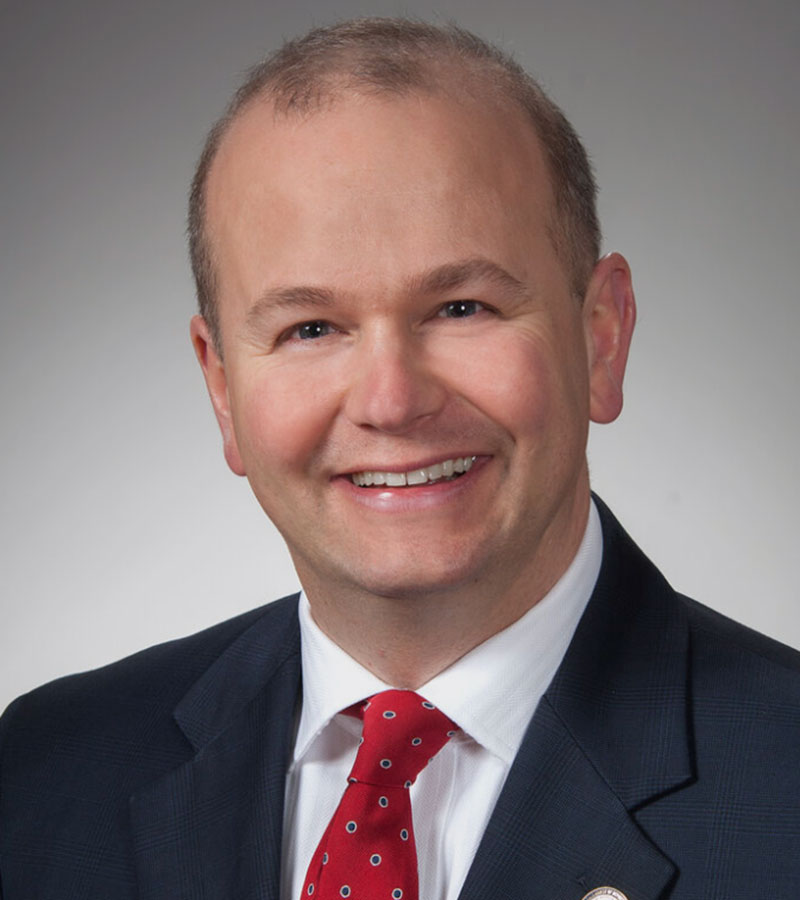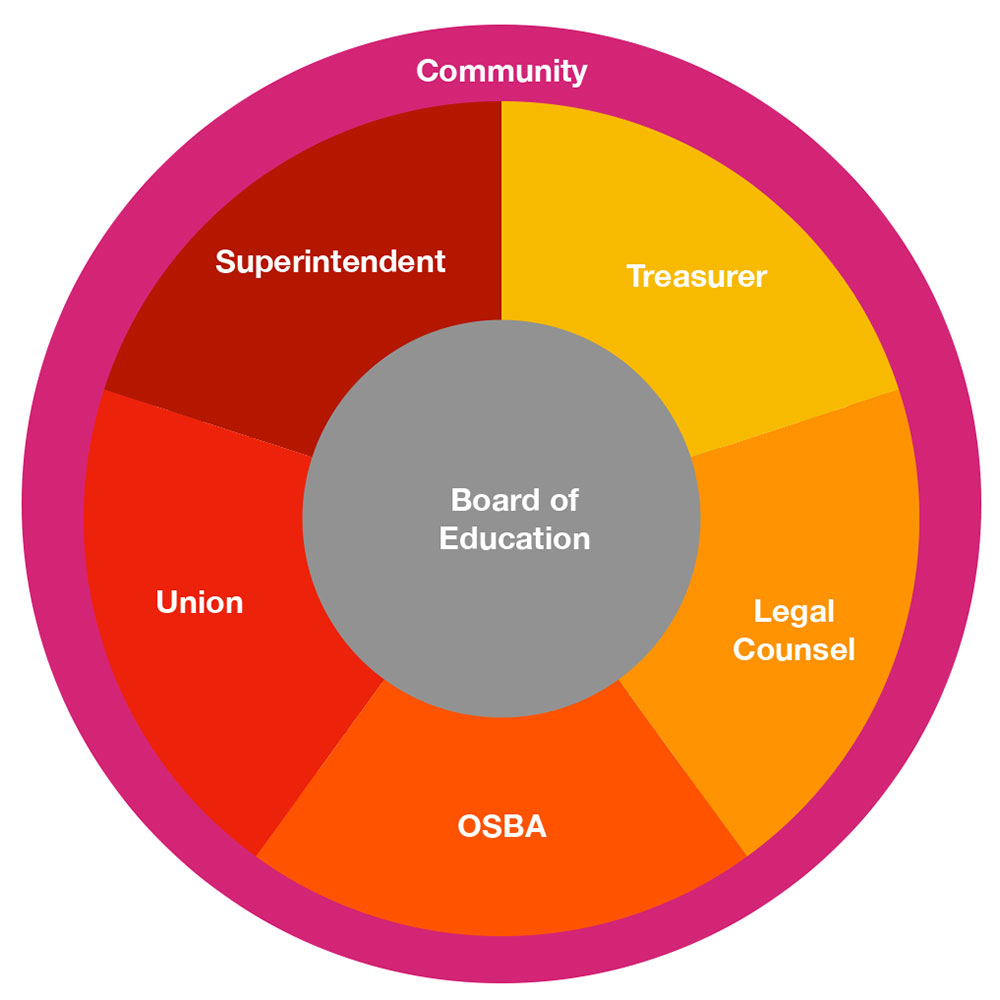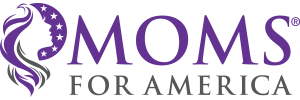
SERVING ON THE SCHOOL BOARD
Training Module One

SERVING ON THE SCHOOL BOARD
Training Module One
School Board Training Module One – Getting Started
The Foundations of Your School Board Position
With the rollout of Common Core in 2010, parents started speaking out against the curriculum. Today there is the plethora of objectionable content in the school district libraries, handouts, textbooks, the surveys, and narrative given by many leftist teachers. More recently, public education has gone off the rails and added social-emotional content to their systems which distract from academics and are instead being shown to degrade academics. Parents long for the classical education in the liberal arts tradition. Classical lessons developed critical thinkers who could debate ideas and created a love for learning. This kind of education is still available. Parents are wanting the fundamentals, reading, writing, mathematics, science, and art put back in public education. Children in our public schools are becoming more and more stressed and dislike their school more than ever. School board members are being elected to bring academics back to public education. It is easy to wonder, why would anyone disagree with public education focusing on classical academic education?
Action Item
Get Started
Review the documentation and videos for each of the items in this training module. There will be a document download button at the bottom of each item, these documents are for your own personal review and are not to be distributed to any other person or entity.
If you have any questions feel free to call Dr. Kelly Kohls at 614-695-5533 or email at NSBLC4ed@gmail.com.
Also please view all of our webinar videos, they are packed with a wealth of knowledge, and will help prepare you for success on your school board.
Module One Resources
1. Kelly Kohls - Standing for Principles
Standing for Principles
Kelly Kohls, former school board member, describes what she experienced as a new school board member, how some of our problems in education developed, and what we can do now.
Kelly Kohls - Standing for Principles
1. A. Preparing for your school board position
Before your first meeting
Know your principles – write them down, refer to them.
As an elected representative, people will attempt to sway your opinion/vote.
Clearly understanding and expressing your core values/principles will make difficult votes much easier. Get to know the US Constitution (Moms for America Cottage meetings online, Institute On The Constitution courses online, Hillsdale courses online, National Center for Constitutional Studies courses online) are very good resources. Get to know your state constitution. Use them to reference why you voted the way you did.
Example:
Good Board Principles
- [Community name] is a great community of talented people that support our schools. We appreciate the tens of millions of dollars the community provides to operate our schools. Community members are not anti-school if they believe the school district should live within its means. Everyone is participating in funding our school, even renters.
- Purchase and support local businesses whenever possible, support those who support us without bias.
- Value honesty and frank discussions.
- Parents are the ultimate authority over their children. Schools shouldn’t try to take on that responsibility. We must assist parents in recognizing their responsibility.
- The board policy manual is the rule book. It has been neglected and often written by politically motivated organizations; we will be working to update it.
- The school district provides students with the opportunity for an education. Students and parents must take the ultimate responsibility for each student’s education and be involved in the decision making.
- Treat community members with respect. It’s not schools vs. community; it's schools AND community. It is not anti-school to disagree with the board, administration, or teachers on any matter including school funding.
- Schools work for the community and answer to it.
- Become active in state policy making. Engage our state reps.
- Be sensitive to the economic conditions. Let’s get through downturns together not at the expense of each other.
Additionally:
- Think through your goals for the next four years – write them down.
Take advantage of being a board member-elect, you are not subject to open meetings law until the official start date. Meet and strategize with other board members, discuss your goals and theirs, discover common ground. - Meet with administrators, find out what they believe are important issues.
- Read your District’s by-laws and Policies
Bylaws govern the conduct of the Board
Policies govern the conduct of the school district - Familiarize yourself with Robert’s Rules of Order.
- Ask your district Treasurer to purchase,
“Robert’s Rules of Order, Newly Revised, In Brief” by Henry M Robert III, et al.
What Is the general purpose of a School Board?
The school board exists to represent the community in the oversight to the activities of the school system. They are the PUBLIC’s connection to public schools. The school board’s purpose is to ensure that the school district operations in the best interest of the community at large, particularly the parents and students in the school district.
It may not be obvious to casual observers that the school board has jurisdiction over ALL school age children within its jurisdiction. While the school board is primarily concerned with students enrolled in traditional public schools, its decisions can impact students attending parochial, charter, private, and home-schooled children.
Download the PDF below to read more about the purpose of a school board.
What Is the General Purpose of a School Board?
Module 1 A - for Print
1. B. What to expect at your first meeting
- Swear in new members
Oath – support the Constitutions of the US and the State of Ohio and to faithfully perform the duties of the office See Example “Oath” pdf we provide. - Election of officers
President pro-tempore (typically last year’s President) solicits nominations
Must have a majority of the full board to elect (i.e 3 of 5 or 4 of 7)
NOTE: by law, some votes require a majority of the FULL BOARD, not just the members present.
A. President – (be the President)
Takes the gavel immediately after elected, responsible for presiding over meetings, appoints committee assignments, sets the board agenda.
B. Vice President- Presides over meetings in absence of the President. - Appointee(s) to the JVS Board
- Committee assignments
- Committees of the Board
A. Standing committees
B. Ad hoc committees
Must adhere to Open Meeting Law (notice and minutes) - Appointments to Other Committees-Established by school administration, board members may participate.
- Designate a place and time for regular meetings
- Standing resolutions
- Some boards adopt resolutions to join organizations such as NSBLC, OSBA, or the local chamber of commerce.
- Designees to attend public record access training
- Establish a board service fund to cover board member expenses for authorized activities.
- Establish the date and time for next year's organizational meeting.
- Any other items that require board action should be deferred to the next regular meeting.
Module #1 Oath of Office Sample
Module 1 B - for Print
1. C. Your oath of office
Your Oath of Office Example:
I, (name), do solemnly swear (or affirm) that I will faithfully discharge the duties of the office of member of the Board of Education (or Board of School Directors, as the case may be) of (name of School District), in accordance with the Constitution of the United States, the Constitution of the State of ____, and the laws of the State of ____, to the best of my ability.
Make sure you use a legal Oath of Office. In 2014 the Ohio School Boards Association sent out an Oath of Office that omitted the US Constitution. This "Oath" was illegal since Ohio Revised Code requires that the oath includes the US as well as the Ohio Constitutions.
The OSBA has been in business since 1955. Do you think this omission was an accident? Since that happened, I have found several districts that have used the illegal "Oath" sent out by OSBA.
Module 1 C - for Print
1. D. Become very knowledgeable about "Robert's Rules of Order"
Become very familiar with Robert's Rules of Order, otherwise known as parliamentary procedures.
Several versions of cheat sheets for Parliamentary Procedures can be found at the links below.
Be sure to watch the webinar with Gregory Carlson for more information on Roberts Rules of Order – see the link below.
Roberts Rules of Order - 101
Parliamentarian Cheat Sheet
Quick Guide Parliamentary Procedure
Simple Parliamentary Procedures
1. E. Become knowledgeable about your district bylaws and policies
You will want to become familiar with your district Bylaws and Policies. Bylaws, include statements about your state law and include some opinion so, it is best to know the laws that impact your position in your state. Bylaws describe how the board operates while policies describe how the district operates. Policies are most typically written by your contracted services. Many, if not all, of these policies include State revised code and the opinions of the people inside your contracted services. You may want to ask this paid service to highlight in a different color which parts are a reflection on your state laws, and which are their opinions. Each district may have a policy manual, and it should be located online where the community can easily find it. Rely on your community to point to policies that work and do not work.
Module 1 E - for Print
1. F. Know the laws in your state that pertain to your position
There are many laws from the Federal, State and local levels that affect your school board, but do any of these laws actually help protect the students, the parents, and the tax payers?
This video will help you understand how the policy makers interpret the laws and write the policies for your school district. It is your job to understand these policies, and learn how you can change or contest these policies.
One thing that is important to know is that there is a federal law (PPRA), that protects the right of the parents to actually see the curriculum, and all materials for your child's classes before your child is exposed to them.
The more you know, the more you can help the families in your school district, so be sure to click on the link below to view this video and read, print and have on hand the Federal act linked below.
(PPRA) PROTECTION OF PUPILS RIGHTS AMENDMENT
https://studentprivacy.ed.gov/faq/what-protection-pupil-rights-amendment-ppra
VIDEO BIOGRAPHIES

Rachel R. Citak
Rachel R. Citak is an Ohio-licensed attorney and PR professional at her own legal practice, RACHEL R. CITAK, ATTORNEY AT LAW LLC. Her firm services conservative causes and clients in multiple practice areas such as education law, employment law, religious liberty and freedom of speech. Her conservative advocacy and public relations work has included appearances on local news stations, testifying at the Ohio Statehouse, and penning high profile op-eds. She has extensive experience working at Ohio’s capitol as both a registered lobbyist and in-house counsel. As passionate firearms enthusiasts, Rachel and her husband Rob are active members of the second amendment community in addition to serving as advisory attorneys for the USCCA network.
RACHEL R. CITAK, ATTORNEY AT LAW LLC
rachel@rcitaklaw.com
513-845-2121
rcitaklaw.com
attorney at law, advocate at heart

Andy Brenner
Your State Senator
Senator Andrew Brenner is currently serving in his first term in the Ohio Senate, representing Senate District 19. He previously served four terms in the Ohio House of Representatives from 2011-2018 and as Delaware County Recorder from 2005-2010. Prior to his election as Recorder, he served on the Kingston Township zoning board and as a representative to the Delaware County Regional Planning Commission for Kingston Township.
Additionally, he is a part of several community organizations including: The Delaware County Farm Bureau, the National Rifle Association, and The Sunbury-Galena Rotary Club, he is a past member and Executive Vice Chair of the Delaware County Republican Party Central Committee and is a past member of several local chambers of commerce.
Upon graduating from The Ohio State University in 1993, where he earned his bachelor of science degree in Business Administration, majoring in marketing and economics, Brenner spent 11 years as an entrepreneur in the real estate and mortgage fields. He has a Master of Education in Teaching and Learning with an emphasis in Leadership from Liberty University. He is a licensed Realtor® at Brenner Brokerage, LLC and a licensed property and casualty insurance agent and Brenner Insurance Group, LLC. He is a member of the Delaware County Board of Realtors®.
Senator Brenner is also a past member of the Board of the Delaware County American Red Cross, Vestry of St. Peters Episcopal Church, past board member and Past President of the Delaware County Friends of the Trail, Past President and Treasurer of the Sunbury-Galena Rotary Club, a current member and past Treasurer of the Delaware-Knox-Licking-Morrow (DKLM) County Suburban Realtors Association, and past Chair of the Delaware County Friends of the NRA. He is also a past member of the National Association of Mortgage Brokers.
Senate District 19 currently encompasses Delaware and Knox counties, as well as portions of Franklin County.
He and his wife, Sara Marie, their two dogs, Maggie a Golden Retriever and Charlie a Golden Doodle, and cat Ellie reside in Delaware.
134th General Assembly Committee Assignments:
- Primary & Secondary Education Committee (Chairman)
- Energy & Public Utilities Committee
- Finance Committee
- Insurance Committee
- Rules & Reference Committee

Melvin Adams
Noah Webster Educational Foundation
Melvin Adams has almost 40 years of experience in educational leadership. Born in Africa to parents serving as Christian missionaries, he was homeschooled in his early years, then attended a British school during his high school years before going to the U.S. to begin his college studies. He took his first teaching job in 1982.
Since then, he has served on the teaching faculty and in the administration of several schools and colleges in the U.S. and started and led a college in Ukraine from 1993-2000. From 2008-2016, he helped to found and lead Renewanation, a faith-based non-profit organization with a focus on education. In 2016, he served on the Presidential Transition Team as a Senior Advisor on Education.
His international experience and his work in the private non-profit sector have helped to shape his perspectives on education. He lives in Virginia with his wife Sandy. They have six children and nineteen grandchildren.
Students Rights, Handling Complaints, Sample Policy
School Board Member Liability
What constitutional or statutory authority do school boards have in my state?
Module 1 F - for Print
1. G. School Board Job Description
Job Summary – as a group of district community representatives – set the Mission, Vision, and policies of the district. To hire, evaluate and terminate the Superintendent and treasurer of your district. To continuously evaluate the progress of the district’s financial status, academic progress and to prioritize the services offered by the district.
Responsibilities and Duties – attend all school board meetings to the best of your ability. Vote on agenda items as presented without bias. Investigate, research and discuss the business of the district. Participate, when possible, in committee meetings. Continuously communicate with your community about the district's plans, needs, successes and deficiencies.
Qualifications and Skills – While there are no specific qualifications or skills necessary to be on a school board you must be able to read the documents concerning the business of the district. No prior experiences are necessary.
Salary and Benefits – This depends on the State you work in. Some States have no board member compensation while others offer limited pay and benefits. This level of compensation will be published in your State Revised Code or State Code.
Module 1 G - for Print
1. H. Code of Conduct
- Always act in the best interest of the students while representing the community you serve.
- The Board’s authority comes from the collective decisions of the board. No one member, or group of members, has the authority to act on behalf of the Board unless the board has explicitly authorized that action. Board actions are authorized by votes of the members in legally held meetings.
- Comply with open meetings laws, conduct public business in public. Limit the discussions in executive sessions to the specific purposes allowed by law. Don’t use executive sessions to hide controversial issues from the public.
- Obey public records laws. Keep personal email separate from school related email. An email from a member of the public to a board member is most likely a public record if a school issue is mentioned. Comply with all valid public records requests.
- Keep an open-door policy with your community, students and district staff.
- Work to understand the issues and materials presented for you to vote on. Do research, ask questions, seek advice, apply your personal knowledge and experience, and vote your conscience.
- When a community member, parent, district employee or student contacts you always respond to the person, even if only to thank them for their opinion.
a. If the issue is regarding school operations, guide them toward the appropriate school administrator (principal, central office staff, Superintendent). If they have done that, perhaps you want to follow up with the Superintendent. Remember, it is the Superintendent’s and the Treasurer’s responsibility to manage their subordinate staff members. Be respectful of the chain-of-command.
b. If the issue is a policy issue, hear them out. Examine the policy in question and determine whether a change to the policy is appropriate. Follow up once you have researched the issue. - Always foster an environment of transparency by having a public discussion on the topics you are voting on. Unless the reasons are confidential by law, make clear the reasons why you are voting the way you choose to vote.
- Avoid and prevent nepotism, conflicts of interest, accepting gifts or favors from those that may be seen as asking for favors.
- If you see possible illegal activities, report the relevant information to the proper authorities.
- Make decisions based on priorities understanding there are limited funds. There is never enough money for everything that everyone wants to do for the benefit of children.
Download the School Board Member Pledge
Module 1 H - for Print
1. I. Sunshine Law
- Sunshine laws require government transparency to the public. Click on the link below to view a PDF of the Ohio Sunshine Law Manual – and look for something similar in your state.
- The Open Meetings Act and the Open Records Act videos are Ohio specific, but it is important for you to identify this type of information for your state. Click on the links below.
- There is free training done regarding Sunshine Laws in each State. Register for the next training online on your State’s “Secretary of State” website. Anyone can attend these.
- Additionally, you can visit the link below to learn about submitting Freedom of Information Act (FOIA) requests for public documents.
- Watch the Executive Session with Judge Curt Hartman video at the link below. He gives in-depth details and answer questions on Executive Session Rules and Regulations in Ohio.
- View the White V King case document regarding transparency, and the Daily Times news article about how Adam White challenged the school board.
Ohio Sunshine Law Manual
FOIA Requests
Adam White Supreme Court Case
Adam White Daily Times News Article
Module 1 I - for Print
1. J. Additional Compensation
Gifts and Favors = Additional Compensation
Can you take gifts from people? State laws may differ but generally the answer is NO. You are not allowed to take gifts, meals, prizes, etc. from your district or anyone else that may be considered a vendor. You can substitute teach or work in other districts, but not your own. If the district ever offers you anything more than something with a value of $25 you are not allowed by law to take it. Don't get caught taking an illegal offering. In Ohio, the state law calls taking a gift worth more than $25, additional compensation. Don't allow anyone to give you anything worth more than $25, or the max allowed in your state. For example, your legal counsel may buy you lunch but not over $25 value. In Ohio, see Ohio Revised Code - 1907.17. Additional compensation.
Module 1 J - for Print
1. K. Influencers to the Board
Where are our elected school board members?
This graphic depicts how insulated you school board members are from the community input. Unfortunately, the majority of the messaging school board members get is from the system and its interested parties. It becomes extremely important that you maintain contact with your community and that you keep telling them what is going on. You were not elected to be a "cheerleader" for the district but to be a conduit of information. Remember lazy ineffective school board members go along to get along and simply parrot what the district wants them to say. Be a good school board member and break the shell of insulation between you and your constituents. Do your job and always talk to the community.

The first “Department of Education” was created by Congress in 1867 as a response to the push by the National Teachers Association... Continue reading....
Teachers Unions Timeline and Influence
This document is a timeline of Education before and after Teachers Unions. It starts in the late 1700's and takes you to 2022, it gives you an insite on the teachers unions timeline and influences.
Additional Resources
https://www3.nd.edu/~rbarger/www7/nea.html
https://mises.org/library/history-labor-unions-colonial-times-2009#part1
https://bellwethereducation.org/publication/overview-history-and-status-teachers’-unions
https://ourworldindata.org/literacy
https://education.stateuniversity.com/pages/2486/Teacher-Unions.html
https://yankeeinstitute.org/2018/06/27/5-things-to-know-about-the-janus-decision/
https://www.washingtontimes.com/news/2020/jul/15/national-education-association-targets-school-reop/
https://nypost.com/2021/08/09/teachers-unions-mask-demands-have-gotten-them-into-a-dilemma/
https://www.yahoo.com/news/more-teachers-unions-push-remote-163255761.html
1. L. Know your rights and responsibilities
Respect for Others
Always offer thanks to everyone involved in the system and those that fund the system.
Not all community members want to participate in the district business, but they will all respect your desire to communicate with them.
When you express that you wish to listen to the community, don’t let anyone tell you that you don’t speak for the community. You were elected to speak for the community as their representative. The principles you speak of are not yours, they are the principles that you and the community agreed on for your election. The community hired you to represent. You were not hired to represent the district; they already have representation through their unions, their administration and themselves.
Always state that you know why you were elected – “to represent the community”. That you are “student focused and community minded”.
- Respecting the community means you will refrain from using “school speak”. School speak is when terminology is used inside the district that the community typically does not understand. The best example is when the district tells the community that personnel inside the district are not getting raises (not telling them that the step RAISES are automatic in the union contract and typically are above inflation). The district is referring to the base pay raises that are given on top of the typical 4% average step raises. If you find your district using school speak it is your duty to clarify in public what they are talking about or forgetting to talk about.
- Respecting the community means you pledge to be honest and direct. The only times you cannot tell your constituents the facts of the district is when it involves specific private (by name or close enough) personnel or students. Every single personnel file is a public document and you and the public are entitled to them. Any public records request for a personnel file must be granted with only a few redactions. The district may redact the personnel records regarding health records and criminal background check.It is perfectly lawful to hold community meetings by yourself if you want to interact with those you represent (every other office holder does this). Show the community what you know and how you know it. Show them why you say your district needs an action plan and to demand better for your students.
- Respecting the parents of your district is easiest if your board adopts a policy or at least a resolution similar to the one piece of legislation found recently in Texas. See Texas Law-Parental Rights and Responsibilities. Parents must have the right to be in any location where their children are. Parents must have the right to be anywhere where their child is being asked questions. Parents must have the right to observe any curriculum and any test to which their child is being exposed. Parents must have the right to be in the room if their child is being asked questions about a possible crime. All these rights must be communicated to the parents as the school year starts. Parents should be asked if they want to yield these rights to the district.
- Respecting the district is often a part of every board meeting as students, faculty and staff are often given their awards and recognition. Beyond the board meetings you can invite those district employees who wish to speak to a board member with an open-door policy. Do not be afraid of upsetting the union or the district admin. You have every right and responsibility to speak to those that the community employs. Your open door policy is not against the law and does not violate the negotiated agreements, though they may try to convince you it does. Don’t worry about your open-door policy being perceived as micromanaging – it is your job to know the business and details of the district and to inform the other board members when things are being done well as well as when they need a new policy or direction.
- Respecting the students means that you assure them the rights as an American citizen that everyone else gets. Offer them your open-door policy.Offer the board a resolution or policy that secures student rights.
Students have legal rights. For example, see here.
Even the ACLU agrees, as shown here.
Student Bill of Rights in remote and digital work here.
Example of an academic Student Bill of Rights here.
- Respect your other board members. While speaking to the other board members outside of the open public meeting, it is important to know the lines of communication are still open. Meaning, you are within your rights to speak to your fellow board members outside the board meeting. You can always call another board member to talk about something in the district and/or something on the agenda. You can give them your thoughts and ask for theirs. You can then call another board member to ask the same question. You cannot tell them how you or others will vote. You can ask another board member if they are willing to second a motion so it can get discussed. You can email or call the board president to put an item you wish to discuss on the agenda. If the president does not put it on the agenda, you can bring up the subject in the board meeting during board member comments. You can mention that the board president refuses to bring up your agenda item which is oppressive and disrespectful of the community's chosen representative.
When you request information from the administrative staff, first go through the superintendent. Make sure you put “public records request” in the subject line. If you have to make a second request or third request, put “second request” then "third request” in the subject line and you can always CC the other board members. This CC is just to let them know what you are asking – however, the other board members should not respond. If you must make a fourth request for the same information, make it stronger wording.
Who do you allow to speak at board meetings?
Your community has earned and deserves respect. Your state residents as well as your fellow Americans help to fund your education system.
It is important to welcome and invite input from all sources. This input does not have to influence you to change your vote, your principles, or your mission.
Some school districts restrict public speaking at their board meetings to only those that live in your district. While they likely do this because the district community members get to vote on levies – we are not sure that restriction is legal if someone wanted to challenge this in the courts. If the argument is that these community members pay the taxes so have skin in the game, that statement would be inaccurate. Most school districts operate on at least 50% of their funding from State and Federal funds. The truth is more likely that the board wants those that get to vote on the levies or on the board members to have the right to speak.
It is in your best interest to invite those stakeholders that live outside your district boundaries to email you and give your email address to them on camera at the board meeting and on your website.
Additional Article - Bullies & Media
Module 1 L - for Print
1. M. Forming Board Committees
Most Common Committees
1. Policy
2. Finance – below is an example of a resolution to start a board committee. This can be done any time during the year.
Be it resolved that the [DISTRICT NAME] Board of Education hereby establishes a Budget and Finance Committee with authority to review, investigate, advise, and recommend to the board on all matters related to school district financial forecasting and financial reporting. The committee shall operate according to Board bylaws section 0155. The committee shall operate in consultation with the Superintendent and Treasurer, or their designees and the Board's attorney as required for the performance of its duties. The board appoints _________________ as chairman and __________________ as member of the Budget and Finance Committee until the board appoints successors or the board's next organizational meeting.
3. Curriculum
4. Compensation
5. Athletic
6. Safety
Others depending on issues facing the district
Board lead committees, Chaired by an appointed board member, Agenda set by the chairman, Subject to the open meetings law (notice and minutes required).
Board sets the agenda in consultation with administration
Committee recommendations approved by a vote of participating board members
Administration supports the committee, Committee chairman reports to the board
Committees make recommendations to the board not decisions on behalf of the board
Resolution forming a board policy committee
Be it resolved that the ____________________ Schools Board of Education hereby establishes a Policy Committee with authority to review, investigate, advise, and recommend to the board on all matters related to Board policies. The committee shall operate according to Board bylaws section __________. The committee shall operate in consultation with the Superintendent and Treasurer, or their designees and the Board's attorney as required for the performance of its duties. The board hereby appoints _____________ as chairman and ______________as members of the Policy Committee until the board appoints successors or the board's next organizational meeting.
VIDEO BIOGRAPHIES

Jim Rigano
Jim is a retired, two-term, school board member from Springboro Ohio. As a member of the Springboro Board of Education Jim served as chairman of the board policy committee and member of the finance committee.
He participated as a board representative in contract negotiations. After the Sandy Hook incident, Jim chaired the board’s Safety Committee charged with identifying ways to improve the safety environment within the school district.
Jim was a co-founder of Educate Springboro, a political action committee that was created to influence school financial policy, where he created the Children First Budget process.
Module 1 M – For Print
More on Committees
Resolution Forming a Board Policy Committee
The first part of the Resolutions video goes over the wording necessary to help you get started forming a board committee.
There is more information in 1N about the remainder of the video see below.
1. N. Making motions and writing resolutions
School Board members should feel comfortable and confident when both reading and writing resolutions. Resolutions must be presented as a motion at a school board meeting.
Once a board member is recognized by the board president they can read their resolution. Another board member must second the motion to bring their motion to the floor for discussion. This motion needs to be seconded by another board member.
Motions can be amended (votes taken to accept the amendments). Once the motion has been discussed and possibly amended a board member can call the question (only once the floor has been vacated. This means that a board member shall always be allowed to present their motion in completion before the "question" (vote) is taken. No one should be allowed to interrupt or "call the question", the person who is speaking after they have been granted that opportunity by the board president.
If a board member, presenting the motion is interrupted, the board president should call, "Point of Order", meaning the flow of "Robert's Rules of Order" has been disrupted and the speaker can continue to present the motion and the rationale for its presentation.
After every board member and possibly the administrators have had a chance to speak about the motion and its amendments another board member can call the question. Calling the "Question" simply means the question requester thinks it is time to take the final vote. Most typically a roll call vote is taken.
The maker of the motion should submit the motion in writing preferably to the Secretary and President to avoid missing any language that might confuse the body.
Video Outline
1:00 – Short resolution sample and discussion
5:45 – Longer and more formal resolution discussion
VIDEO BIOGRAPHIES

Jim Rigano
Jim is a retired, two-term, school board member from Springboro Ohio. As a member of the Springboro Board of Education Jim served as chairman of the board policy committee and member of the finance committee.
He participated as a board representative in contract negotiations. After the Sandy Hook incident, Jim chaired the board’s Safety Committee charged with identifying ways to improve the safety environment within the school district.
Jim was a co-founder of Educate Springboro, a political action committee that was created to influence school financial policy, where he created the Children First Budget process.
Resolution Forming a Board Policy Committee
Sample School Board Resolution
Module 1 N - for Print
The first part of the Resolutions video helps with Forming Committees found in 1M Above.
The remainder of this video is a discussion on writing resolutions.
